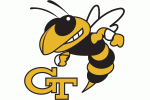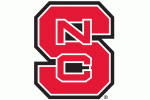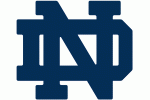Talk to any college basketball fan over the last three months, and once the conversation drifts to the Atlantic Coast Conference you’ll inevitably hear the same refrain – how, other than Duke, the league is incredibly weak. Outside of the Blue Devils, so the thought goes, it’s difficult to envision an ACC team lasting until the second weekend of next month’s NCAA Tournament.
The Big Dance, with its 68 teams, seven rounds and single elimination format, is an almost-impossible beast to predict. Plenty of teams have slogged through mediocrity for four and a half months, squeezed there way on to the right side of the bubble, and then caught fire all the way to the second (or even third) weekend of play.
Happens every year, and 2011 will be no exception. There’s a good chance an ACC team or two will be a part of the Cinderella brigade. Anyone who tries to tell you who the upsets will come from is just guessing.
But the conference’s potential for Tournament success doesn’t detract from the overall opinion, which is rapidly turning to fact – that the ACC, by its standards, is incredibly weak in 2010-11. The regular season (which, because of its much bigger sample size, is a much more useful measurement tool than the NCAA Tournament) is filled with evidence that supports the assaults against the ACC’s status.
Consider, just briefly, that the conference went nearly two months with only one ranked member. That the league has only earned five wins over ranked non-conference opponents all season, and four of the victims are no longer in the top-25. That, if the tournament started today, only four league teams could safely punch their March Madness tickets and two of those (Florida State and Virginia Tech) still have plenty of work left to do in the season’s final few weeks.
So again, I’m not here to argue on the ACC’s behalf. Can’t do it, at least not with a straight face.
But I do know why the league’s stock is so low – a conference-wide lack of depth.
To be clear, I’m not talking about bench quality, which is the trait most regularly associated with the term “depth”. Plenty of teams over the years, from this season’s Ohio State squad to pretty much every National Championship-winning roster that Duke has fielded over the last 20 seasons, has proven that you can build an elite team without an elite bench. Bench depth, frankly, is one of the most overrated aspects of the sport.
No, I’m not talking about the quality of the 8th and 9th-best players on ACC rosters. I’m talking about their 2nd, 3rd and 4th-best players. The guys who pick up the scoring load when the top gun is having an off night. The guys who play 30 minutes a game because, well, in basketball, five guys have to be on the court at all times, so somebody has to fill that role.
And that’s the problem that’s plaguing most of the ACC’s mediocre majority. The star power is there. But the support for those A-list players is not.
When a league as big and historical as the ACC falls on hard times, it’s often been assumed that the upper-echelon talent is lacking. In this case of the ACC, that’s simply not the case at all. It may surprise some folks to learn that the league has five players on the Wooden Award’s 30-man mid-season watch list (Malcolm Delaney, Reggie Jackson, Kyle Singler, Nolan Smith and Jordan Williams), the same number as the Big East (with its 11 Tournament candidates) and just one fewer than both the Big 12 and the Big Ten.
Even more surprising is that the conference has six players (Smith, Singler, Kyrie Irving, Chris Singleton, Harrison Barnes and John Henson) projected to go as first rounders in this summer’s NBA Draft according to DraftExpress. That’s just one fewer first rounder than the Big 12 is projected to produce and (believe it or not) twice as many as the Big East and Big Ten have combined.
Without question, the elite talent is there. It’s the trusted secondary options that have failed to materialize for just about every team other than Duke (with Seth Curry, Andre Dawkins and Mason Plumlee consistently turning in solid efforts) and Wake Forest (sucks all the way around). That’s led to a season’s worth of choppy play, inconsistent results and, next month, a smaller-than-desired seat on the bus to the Big Dance.
In Chapel Hill, Roy Williams’ club has struggled to develop consistent point guard play and perimeter scoring to compliment the post work of Barnes, Henson and Tyler Zeller. At Virginia Tech, injuries to Dorenzo Hudson and J.T. Thompson and Jeff Allen’s enigmatic effort have derailed more than a few heroic outputs by Delaney. For Maryland and Boston College, the brilliance of Williams and Jackson, respectively, has struggled to carry a supporting cast that, to be honest, just isn’t ACC caliber.
Even the sure-fire March Madness outsiders have elite, NBA-level talent. Georgia Tech (with Iman Shumpert), NC State (with Tracy Smith and C.J. Leslie) and Miami (with Durand Scott, Reggie Johnson and Malcolm Grant) all have stars whose running mates aren’t up to snuff and can’t support a postseason run.
March is every conference’s second chance, and a quartet of Sweet 16 qualifiers would no doubt silence the disparaging remarks that the ACC has heard far too often this season. But it won’t erase one of the worst regular seasons in conference history, a year devoid of marquee wins and plagued by the most top-heavy collection of rosters in the nation.



















